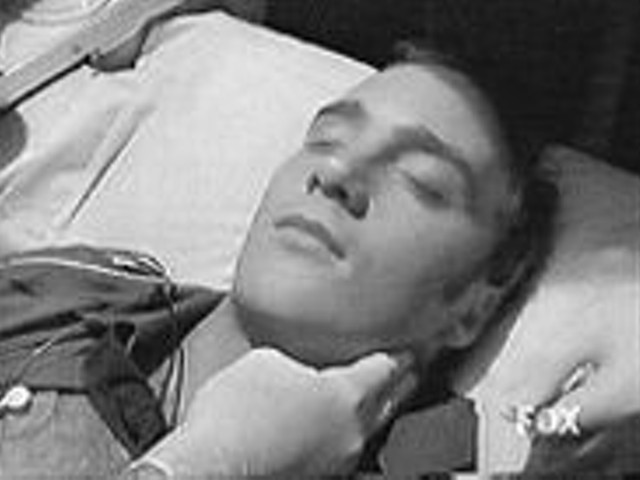Songs about songs and novels about novels generally uncolor the atmosphere. Films about films and, even more so, plays about plays can delight and inform with a relative sureness that other topics simply do not possess. Carlyle Brown's
The African Company Presents Richard III, currently playing at the Grandel Theatre, is a case in point. Brown takes as his subject an odd bit of U.S. theatrical history as his starting point. In 1821, an important New York City theater, the Park, invited the celebrated British actor Junius Brutus Booth (father of Edwin Booth, the actor, and John Wilkes Booth, Abraham Lincoln's assassin) to appear in a production of Shakespeare's
Richard III. By ill luck, a group of black actors, most of them slaves who had escaped to freedom (of sorts) in New York City, had formed a group they called the Negro Company and were already presenting a production of
Richard III -- not to rival the Park's production but because it was the only script their leader had. By worse luck, the production achieved some notoriety not only because blacks were acting Shakespeare but also because they were doing so acceptably. The Park's manager, Stephen Price (played by Joneal Joplin, at the top of his form), closes the Negro Company's production down once, but its manager, William Henry Brown (Ron Himes), reopens in the ballroom of a hotel right next door to the Park, even though offered the considerable sum, in 1821, of $350 to close his production until the Park's has finished its run.
The motivation of Price, a hard-nosed man of business, is not difficult to see, but the terrible, disheartening emotional change he undergoes is horribly recognizable, for it is what happens to human beings when they behave inhumanely. Brown's motivation, on the other hand, is less obvious. Foolhardiness is too easy; so is styling it an existentialist gratuitous act. The play also discusses why actors act; who protects, even owns, a cultural heritage; how the actor's art and real life merge and conflict. In short, The Negro Company Presents Richard III is meaty, if occasionally talky, stuff.
In addition to Himes and Joplin, director Wayne Salomon's remarkably strong cast includes Corey E. Jones, intense and compelling as James Hewlett, the Negro Company's leading man; Cherita A. Armstrong as Ann Johnson, who cannot separate her stage character from her real emotional life; Joy C. Hooper as Sarah, a witty, abrasive member of the company; and Akin Babatunde as the mysterious Papa Shakespeare. Joe Hitti, as a New York City constable all too ready to do Price's bidding, rounds out the troupe. Salomon sets a nice quick pace, and his insights bring an air of clarity to sections of the play that might otherwise appear murky. Mark Putman is responsible for the spare, elegant set; Joseph W. Clapper for lighting it so well. Cynthia Winstead's costumes for the women are quite serviceable, the men's somewhat unconvincing.
Continues through May 14.





